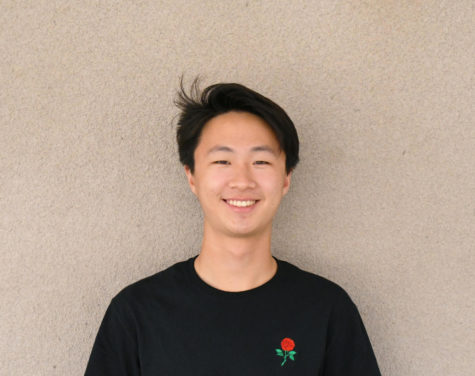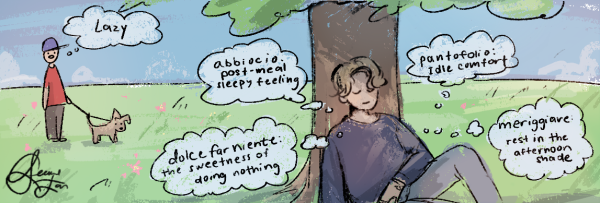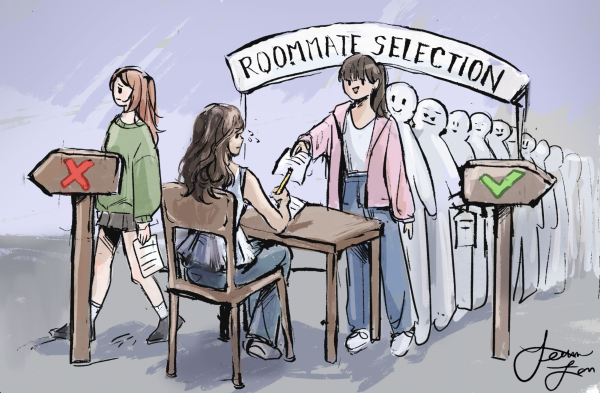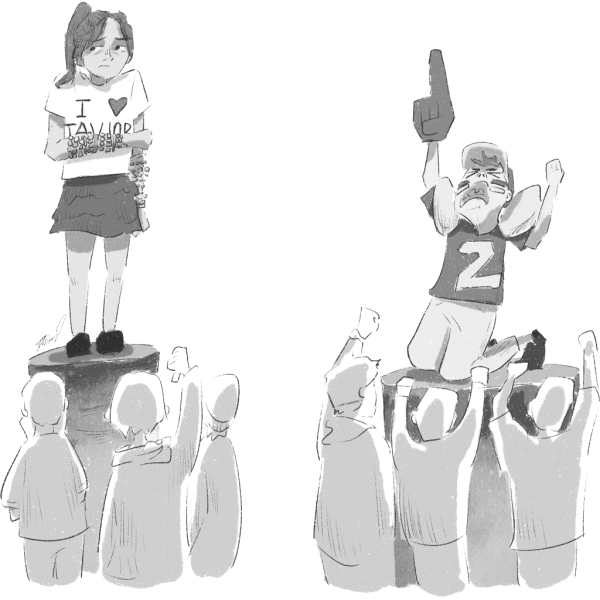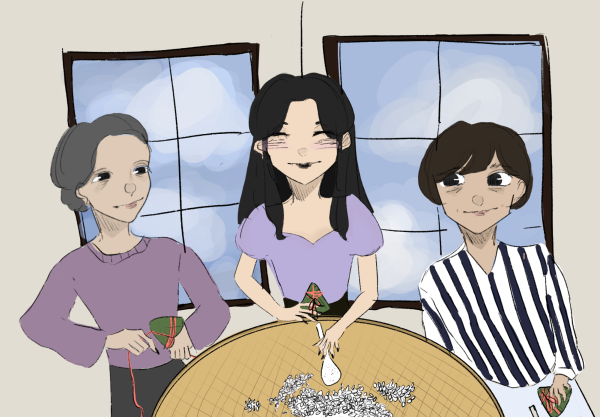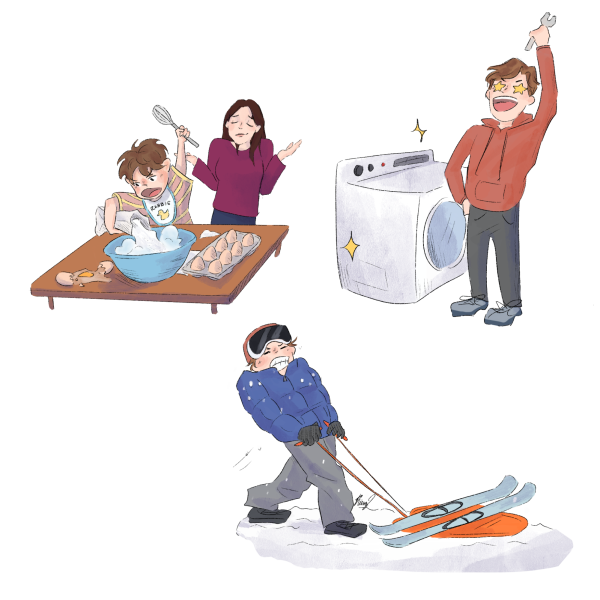Opinion: High schoolers can and should do more about modern political issues
In the last year, we’ve been surrounded—even consumed—by a hyper-awareness of the political scene and what’s going on in the world. Being stuck at home and having often little more to do than scroll through Instagram or Twitter has time and time again made us more aware of what’s happening.
From then on, we watched as our world began shutting down. We watched the life escape George Floyd’s lips. We bit our nails waiting for the results of the presidential election. We watched in horror as violent rioters descended on the capitol. We found relief watching the jury of former police officer Derek Chauvin’s trial as they found him guilty of the three charges against him.
For us high school students, it often feels impossible to figure out how and where to make an impact.
I think it’s obvious to all of us that we shouldn’t stay silent. Whether we hold conversations with our friends and family about these topics or spread awareness through social media, or even attend protests, this idea of “spreading awareness” seems to be the most clear and straightforward thing to do.
This individual impact, all things considered, is relatively small. It relies on the buildup of millions of people spreading awareness about things like racial justice to really make a difference. But it’s not like we in particular are simply unaware of these things. We’re in a kind of social and political purgatory—we’re beginning to comprehend the degree of problems that exist in the world, but for many of us, it could be years before we can do much about them besides talking or sharing information. Even once we gain the right to vote, it still doesn’t quite make the impact most of us would like to have.
And that’s a good thing—change should usually only happen if it seems like there is a widespread support for it. But for a myriad of political and social issues, we’re running out of time. While democracy aims to be free and fair, it comes at a cost of speed. For things like climate change, we don’t have that kind of time to get things moving. For our issues of systemic racism and human rights issues, we shouldn’t be waiting to get those things fixed.
But there are ways to make a slightly larger impact than simply “spreading awareness.”
One thing is to show up. Go to city hall where the local decisions are made. The average American isn’t going to be able to get much done on a federal level, but the local level is where most things actually get accomplished. Expressing your opinions during town hall meetings where the officials are there to listen, and speaking to a representative directly about what ideas you support is an important part of the democratic process.
These things do make an impact. Winnie Xu (11) said that part of her job as a legislative staff member for Assemblymember Marc Levine is to receive and log contact with Levine’s constituents. While to many of us, it sounds unlikely that the letters we send reach the representative we want it to reach, Xu said it surprised her how much direct contact there actually was.
“Every single email, every single call, every single message that you submit on their contact form, everything is recorded, and everything that you say down to the punctuation is noted down,” she said. “Once there’s a certain number of messages concerning a certain topic, it’s directly taken to your representative.”
Xu said that making this kind of difference is realizing where and how you can make a difference.
“Because so much of [spreading awareness] on social media is just down to the numbers, how many people you can reach how many posts you can repost, I think that the numbers can seem very, very trivial,” she said. “But just like in real life, when you’re just like picking up a phone, sending an actual email, we really do reach so much more than we realize.”
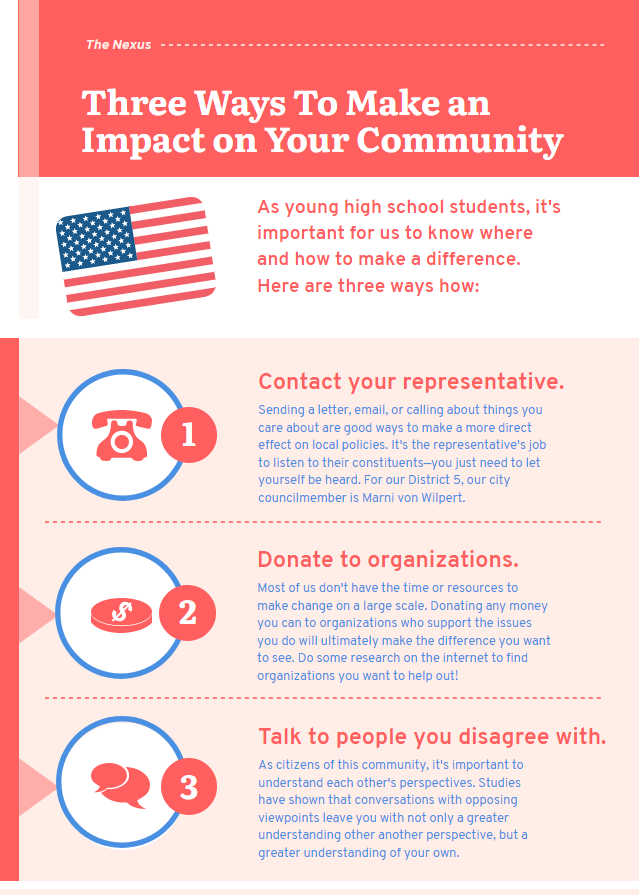
In addition, as high schoolers, Xu said that one of the best things we can do is grassroots organizing. In a sense, she said, it still kind of falls under spreading awareness—not necessarily awareness about the issues themselves, but how important it is to everyone in the community.
“The most important thing is knowing who your representative is,” she said. “The legislative process takes a long time, and that makes it easy to be cynical. I totally understand why it’s so frustrating at times [to make change.]”
And that’s significant—understanding where you can make a larger impact. On a federal level, not many of us can. But local politics is something we should all try to be a part of. As Xu said, our voices are much more easily heard through our local representatives.
You can donate to organizations that are already doing the work you want to see accomplished (only if you can). Donations of any kind to organizations you support are a good way to push your community, city, state, or nation in the direction you think it should go.
Actively converse with people you disagree with. Don’t set out to change their minds, but instead seek to understand their perspective and help them understand yours. Of course, this can only be done when both parties agree to these conditions. If it sounds useless, don’t just take it from me. According to law and political science professor at Yale University Bruce Ackerman and government professor James Fishkin at the University of Texas, national “deliberation days” in which a number of registered voters discuss political issues in small groups with their communities have been shown to leave everyone with a greater understanding of not only differing opinions, but their own opinions as well.
It’s not to say that it’s totally useless to repost things on your Instagram stories. Nor am I suggesting that protests don’t make a large impact—they do. But if we really care about the direction our nation—and the world—is going to go in, it’s cliche, but we’re the generation that needs to step up to change it. From issues like systemic racism and the militant police force to climate change, it’s up to us to do as much as we can. Most of us are already aware these things are happening. For us at this point, it’s not enough to just be aware. It’s time for action.
